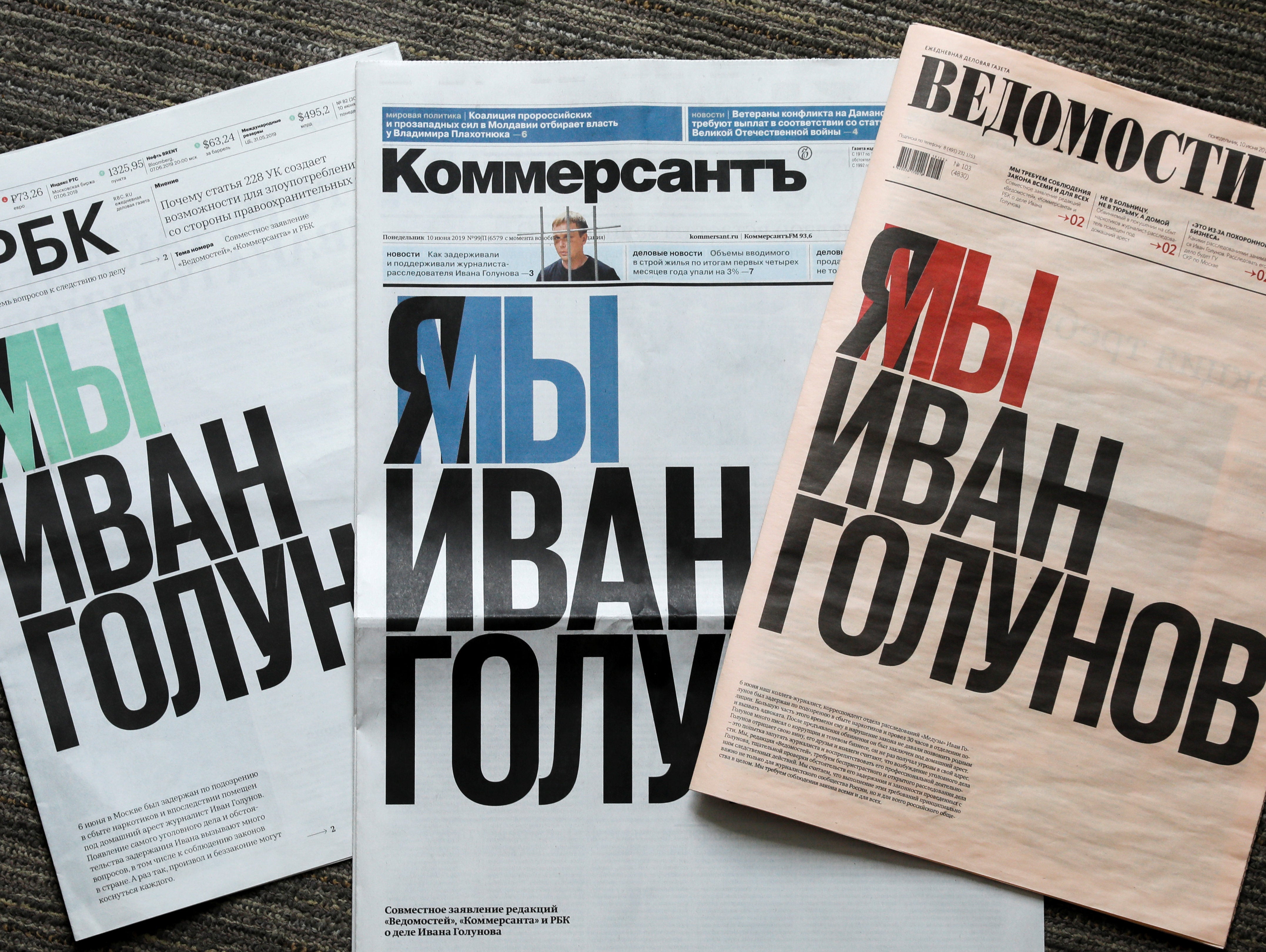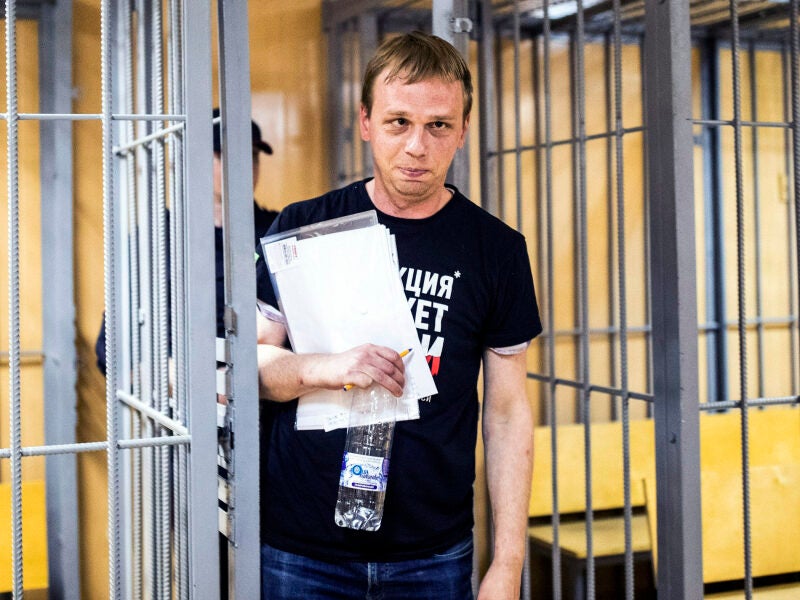
Three of Russia’s biggest newspapers have joined together to publish a front page protesting the arrest of investigative reporter Ivan Golunov.
Golunov, a journalist who writes for Russian-language news website Meduza, based in Latvia, was arrested in Moscow on Thursday and later charged with possessing drugs with intent to supply.
He has now been put under house arrest an faces up to 20 years in prison if convicted.
Golunov is known for investigating political corruption and criminality in Moscow and Meduza said he had recently been threatened.
The website said: “We are convinced that Ivan Golunov is innocent. Moreover, we have reason to believe that Golunov is being persecuted because of his journalistic activities.”
The circumstances around Golunov’s case has sparked accusations that he was framed and that drugs were planted on him in retaliation to his work.
He told Meduza he was not allowed to contact a lawyer for more than 12 hours after his arrest, his request for a test on his hands to be done that would show whether he had been in recent contact with drugs was denied, and he was reportedly beaten up during his detention.

Ivan Golunov leaves the cage in a court room in Moscow, Russia, on Saturday 8 June 2019. Picture: Evgeny Feldman/meduza.io via AP
The front pages of the RBK, Kommersant and Vedomosti newspapers today published the same front page in solidarity, with a headline that reads: “I am/we are Ivan Golunov.”
A statement carried by the newspapers says: “We demand a detailed investigation into the actions of the police who detained Ivan Golunov to see whether these actions were legal, and we demand that details of this review are reported to the media.
“We demand that law enforcement bodies rigorously adhere to the law. We demand that everyone abide by the law – for everyone’s sake.”
A fourth newspaper, Novaya Gazeta, said police have declared war on journalists, according to BBC News Moscow correspondent Steve Rosenberg.
And Moskovsky Komsomolets features a cartoon which depicts police with their hands on Golunov as they sprinkle drugs over him, with one saying: “Let’s bury him with evidence.”
“The police have declared war on journalists,” declares one Russian newspaper today. Reporters express outrage at the detention of a well-known investigative journalist. Out of solidarity three papers feature the same front page & headline: “I/We Are Ivan Golunov” #ReadingRussia pic.twitter.com/hQJTdj9qvC
— Steve Rosenberg (@BBCSteveR) June 10, 2019
Rosenberg called the joint front pages “pretty dramatic” and said the newspapers’ coverage made it clear the case has “sparked shock and outrage”.
“It also shows that there are still newspapers and journalists in Russia who are prepared to speak out against what they see as bogus charges and an increasingly repressive law enforcement machine,” he said in a report.
Financial Times Moscow correspondent Max Seddon tweeted that newsstands in the city had begun to sell out of the newspapers before lunchtime, showing a “huge public reaction” to the case.
He added: “Print’s not dead yet.”
Journalists picketed Moscow City’s police headquarters on Friday in protest at Golunov’s detention, 12 of whom were briefly detained by officers before being released.
A lawyer for Golunov has filed a complaint with Russia’s Investigative Committee claiming that police used “unmotivated physical violence” against him while he was in custody.
His lawyers said he may have suffered a concussion and rib fractures. He was examined in hospital on Saturday and found to have abrasions on his back and a bruise around one eye.
Police have denied the claims and Russian authorities have not publicly commented on the case.
Freedom of expression group Article 19 said it was “seriously concerned” by the reports of violence against Golunov.
Sarah Clarke, the group’s head of Europe and Central Asia, said today: “The arrest of Ivan Golunov, one of Russia’s most important investigative journalists, is blatantly a reprisal for his public-interest journalism which has covered highly sensitive corruption.
“We are closely monitoring the authorities’ treatment of Golunov in detention. We call on the authorities to immediately release him, drop these bogus charges and investigate allegations that he was beaten in police custody.”
Reporters Without Borders (Reporters Sans Frontieres) said it was “extremely concerned” about the “suspicious behaviour” of the police who arrested Golunov.
Johann Bihr, the head of RSF’s Eastern Europe and Central Asia desk, said: “The extremely strange behaviour of the police suggests that Ivan Golunov has been arrested on a trumped-up charge.
“Why would they otherwise deny him access to his lawyer and refuse to carry out decisive tests?
“If fabricated evidence really has been used to arrest a journalist who is so well-known throughout Russia, this would mark a significant escalation in the harassment of the country’s independent media.”
Picture: Reuters/Shamil Zhumatov
Email pged@pressgazette.co.uk to point out mistakes, provide story tips or send in a letter for publication on our "Letters Page" blog

